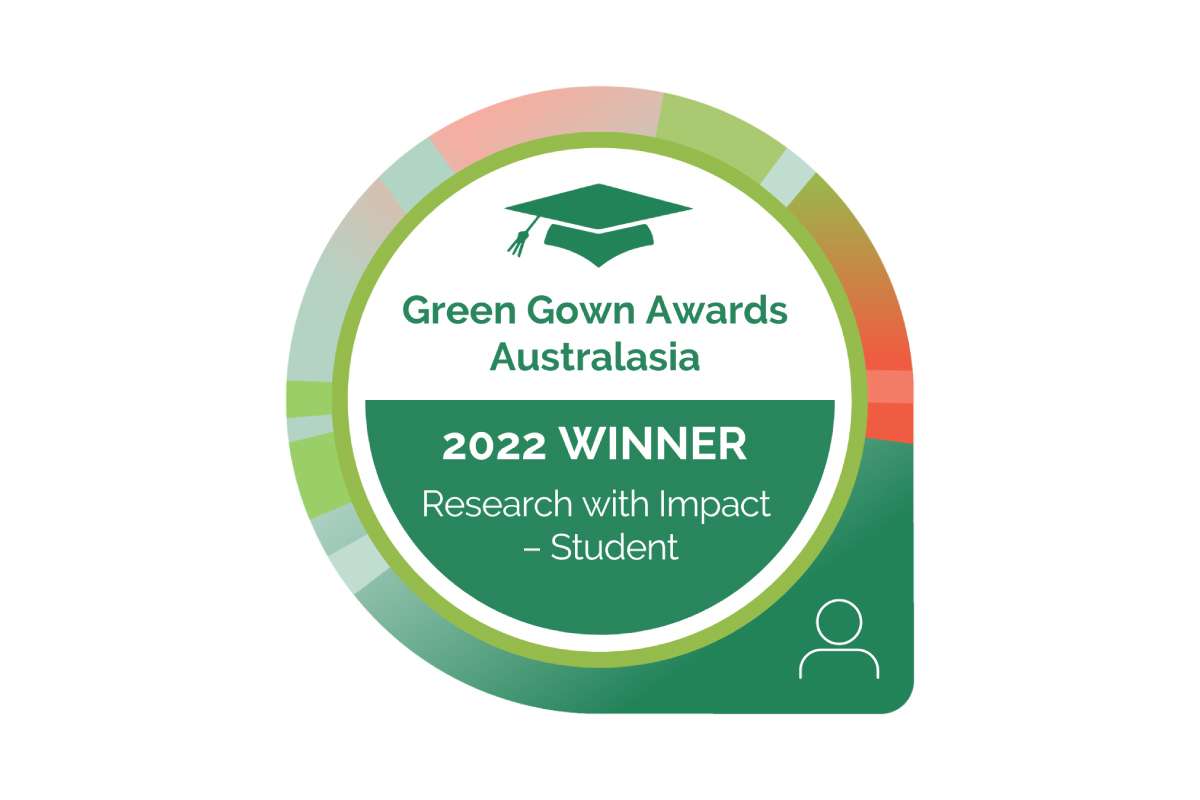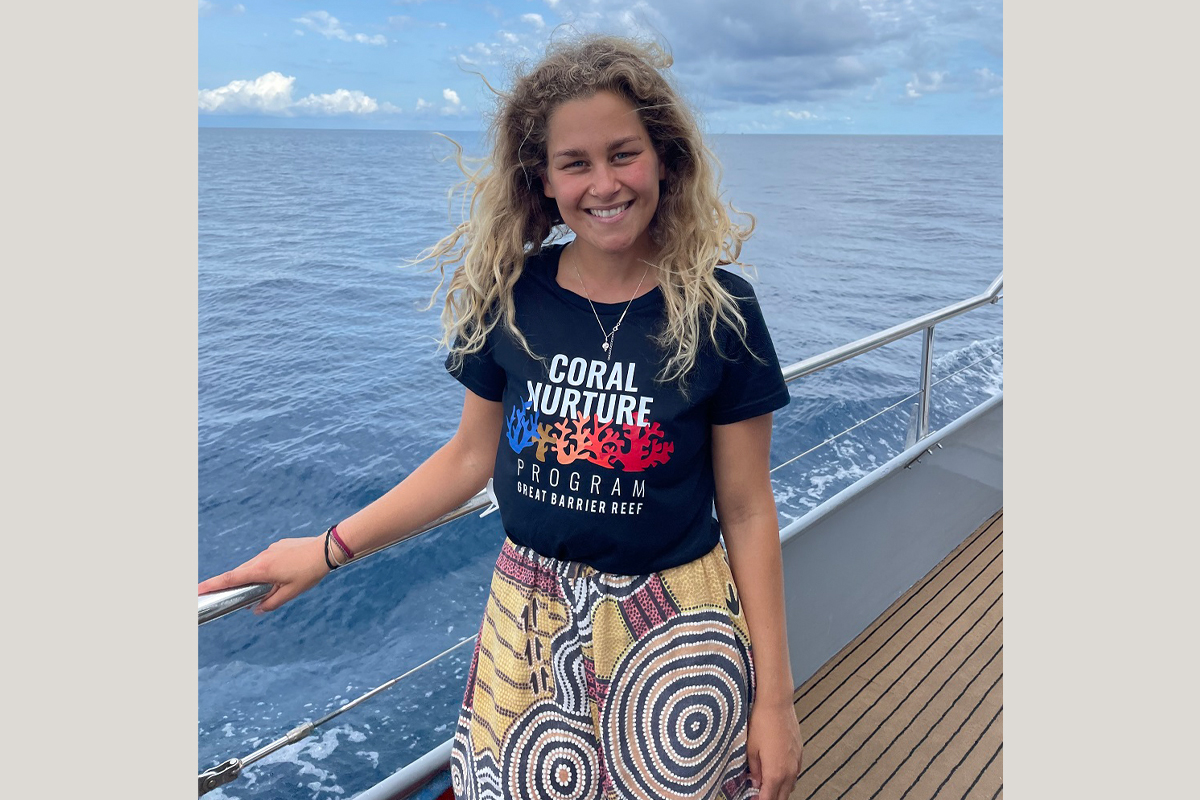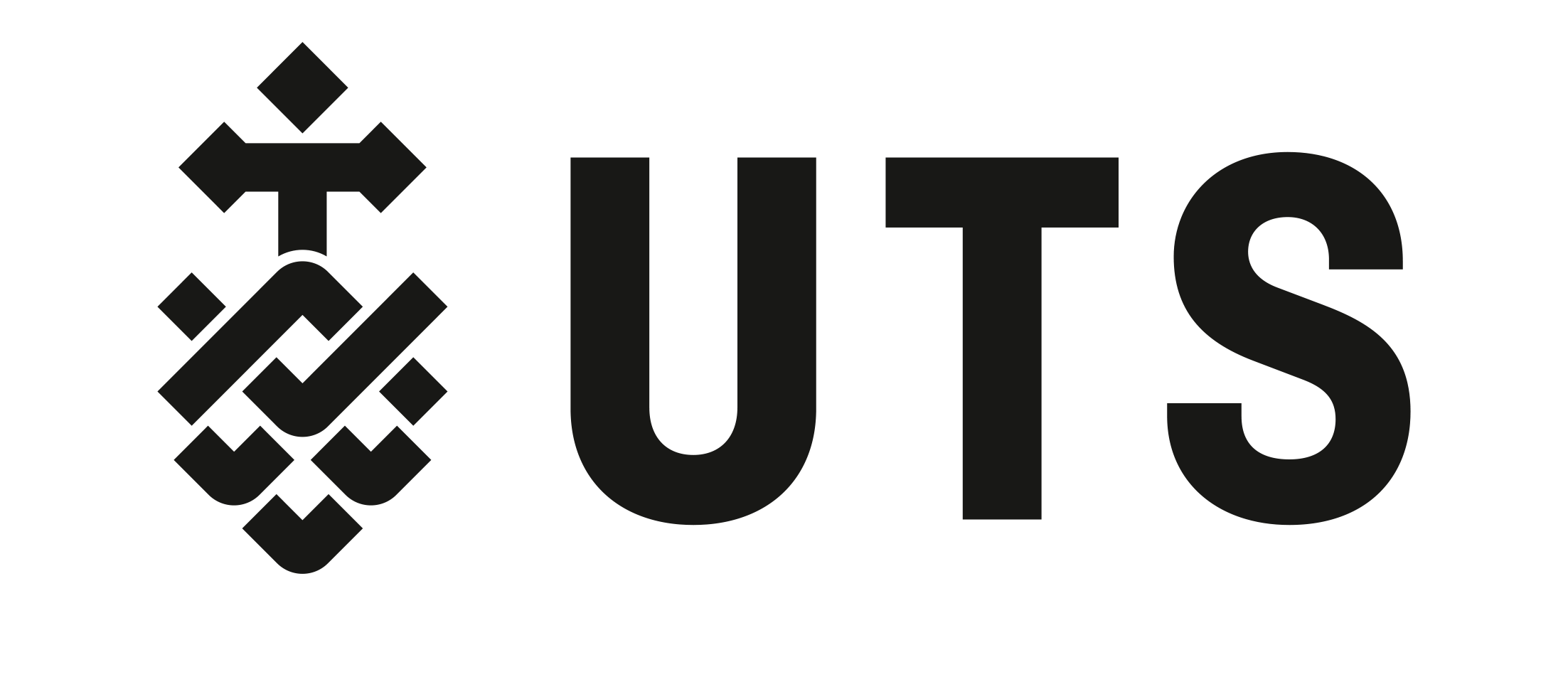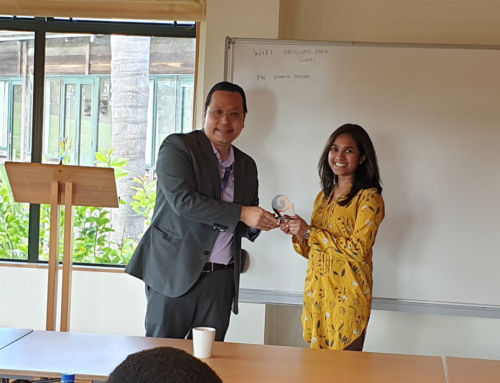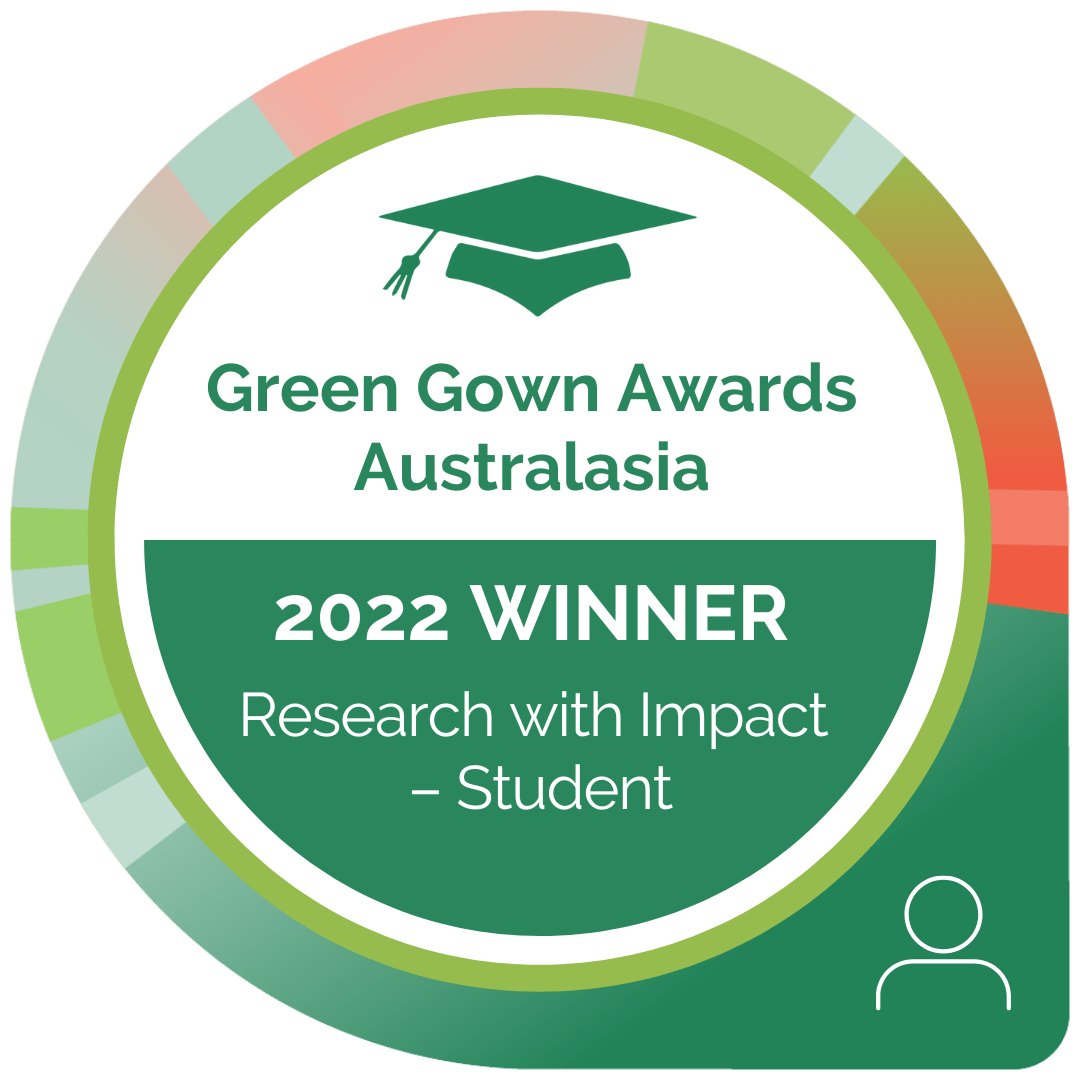
University of Technology Sydney
Rachael Scott is a Masters Research candidate studying a novel community-led reef management initiative on the Great Barrier Reef. Her work focuses on an innovative restoration project, where tourism operators plant and propagate corals to boost the recovery of the reef sites they steward. Rachael also works as a science educator and innovation hub coordinator in the UTS Faculty of Science with the algae research team, communicating the exciting possibilities that algae can play in solving some of the planet’s most intractable sustainability challenges and working with small businesses to action them.
> A closer look
Rachael Scott is a Masters Research candidate studying a novel community-led reef management initiative on the Great Barrier Reef. During the COVID-19 pandemic, when Queensland tourism operators were heavily impacted by border closures she worked on a collaborative project, uniting reef science with the tourism industry. Since 2018, the Coral Nurture Program, a globally unique research-tourism partnership between UTS and a consortium of tour operators has planted >70,000 corals across 27 reef sites from Cairns to Port Douglas to rehabilitate high-value tourism sites on the Great Barrier Reef. With the corals growing successfully, the next challenge is scaling up activity to expand the scope and impact of the project. Through the Program, a novel low-cost planting device, called the Coralclipâ was developed by one of the Program’s tourism partners to increase the efficiency of planting by up to ten-fold compared to previous methods. This is where Rachael’s work comes in.
Rachael’s own research is examining the cost-effectiveness of planting corals with the Coralclipâ through the Coral Nurture Program science-tourism model. Her research, with its important ecological and socioeconomic perspective, will provide critical information for reef mangers and investors to understand the cost-benefits of scaling community-led restoration practices. In prior coral planting initiatives in various parts of the world, coral fragments have been attached to the reef using glues or cement, a time-consuming and impactful process. Using the Coralclipâ improves the speed and cost-effectiveness of coral planting significantly, enabling greater scale. Importantly, the Coral Nurture Program builds capacity for key reef stakeholders to steward their reef sites and respond to impacts – ultimately helping to improve the resilience of reef tourism businesses.
Rachael’s research is based within the UTS Climate Change Cluster (C3) within the Faculty of Science at UTS. The Climate Change Cluster is a leading research institute in climate mitigation and adaption and ocean sciences with a particular research strength in algae biotechnology. Within C3 is the Deep Green Biotech Hub, an industry innovation hub that supports small businesses to translate algae research beyond the lab to develop sustainable, algae-based products for use in a variety of industries from agriculture, food, cosmetics, pharmaceuticals and alternate materials.
In addition to her own research with C3, Rachael works as an Engagement and Project Coordinator for the Deep Green Biotech Hub. Her role involves supporting and engaging with small businesses and startups working in sustainability, collaborating with a small team to deliver internal and external high-impact events, and collaborating with internal and external partners to champion the innovation ecosystem in NSW.
Rachael is a talented research in her own right, and in addition has a demonstrated history of working in science and sustainability engagement, environmental education and science communication. To each of her roles, she brings an endless enthusiasm, an openness and desire to learn from and help others, and a creative and critical mind.
> Impact and benefits
The NSW Deep Green Biotech Hub works to connect NSW-based businesses with cutting-edge algae biotechnology research, so they can collaborate to build a more sustainable future. An important part of the work is to educate the public about the exciting possibilities and endless potential applications for algae biotechnology – helping to solve some of our most wicked sustainability challenges. Rachael’s communication skills and work help to maximise this impact.
One of the specific contributions she brings is communicating science to young people, as well as people with little formal scientific knowledge. This July she heads off to the Splendour in the Grass music festival to help staff the Deep Green Biotech Hub Tent at the Festival, as one of the centre’s featured scientists. At this major national event, she will be talking directly to music festival goers about the exciting potential of science and algae to solve some of the planet’s most intractable problems. As a young science communicator, one of the most significant impacts Rachael has is inspiring young people to get involved in science.
Rachael’s role at Deep Green BioTech Hub involves supporting and engaging with small businesses and startups working in sustainability and algae biotechnology, helping to support and nourish the development of the algae-based biotech industry in Australia. The potential benefits from algae are huge from sustainable fuels and food to industrial chemicals, cosmetics and CO2 drawdown.
In her own research, the main benefits are understanding the costs and benefits of coral propagation and planting at high-value tourism sites on the Great Barrier Reef, to inform reef management actions that sustain socioecological resilience in a changing ocean. The Coral Nurture Program (CNP) partners with tourism operators and traditional reef owners, to provide new tools to deliver local site stewardship. Before the Program, tourism operators could undertake stewardship activities such as reef monitoring and the removal of coral pests like the Crown of Thorns Starfish but were unable to propagate coral to enhance site recovery and longer-term resilience. Building coral propagation-based stewardship capacity by reef tourism helps diversify conservation practices and therefore a more resilient industry.
Rachel is a dedicated young environmental scientist with enthusiasm and passion for working collaboratively on diverse projects that support the mutual wellbeing of humans and the planet.
> Leadership and engagement
In 2021 Rachel played a key role working with students from non-science disciplines in the 2021 UTS Startups Green Incubator program, mentoring budding entrepreneurs to develop their green start-up ideas. She engaged with students from a diverse range of disciplines to provide scientific expertise and guidance on their various projects. In her role of Outreach Ambassador for the NSW Deep Green Biotech Hub, Rachel’s enthusiasm for algae and sustainability helps inspire the next generation of change-makers.
Rachael has taken direct ownership and leadership of several outreach, teaching, and government initiatives. In 2019, she led an engagement program as a part of National Science Week with the Australian Museum to teach high-school students about climate change and algae. Feedback from participating schools highlighted Rachael’s enthusiasm, unique approach to engagement, and clear thought-leadership in the space. Beyond the university, Rachael is a community leader and collaborator, leading her local Newcastle community in organising sustainability events – including a screening of the film 2050 – and communicating her research in outreach activities.
Rachael also works within the Faculty if Science as an undergraduate teaching assistant in Ecology. She is responsible for the practical-based learning of students, introducing them to the evolutionary journey of life and teaching the foundations of monitoring and assessing the health of ecosystem function. Being a supportive mentor and student leader was incredibly important during the COVID-19 pandemic and she regularly checked in on the wellbeing of students. As a post-graduate student herself she plays an important peer support and mentor role, inspiring fellow students.
> Wider societal impact
The role and contribution of science to solve the world’s wicked problems have been recently debased in some parts of political and popular culture. This is alarming given the nature and scale of the problems facing planet Earth. What is needed is more scientists skilled in communication and committed to engaging the wider society in scientific literacy. Especially young people. Rachael is one of these individuals. She has demonstrated a talent for communicating science and inspiring the interest and enthusiasm of others.
Her own area of research has the potential to contribute knowledge to inform future investment and integration of community restoration programs into broader reef management plans, as well as building stewardship capacity of the reef tourism industry. In 2021 during COVID-19-related lockdowns, tourism operators were supported through government grants a undertake reef stewardship activities, including planting coral with the Coral Nurture Program. This helped safeguard skilled workers and the tourism industry when tourism activity was low. This evidence now forms the foundation of a new blended finance model for the industry, building both ecological resilience for the reef and industry resilience for tourism businesses and workers.

